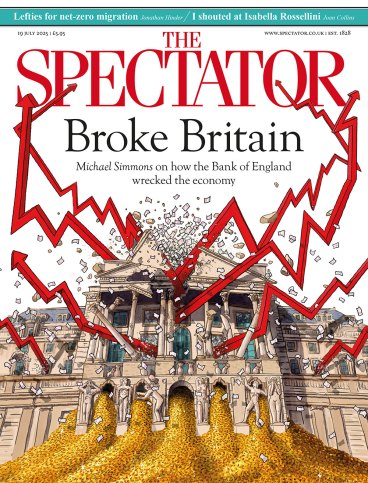
About 15 years ago, I tried to interest my literary agent in a state-of-the-nation novel set in 21st-century London. My model was Bonfire of the Vanities, Tom Wolfe’s masterpiece about New York in the 1980s. I’d read Wolfe’s essay in Harper’s magazine called ‘Stalking the Billion-Footed Beast’ in which he urges ambitious young authors to dispense with namby-pamby, post-modernist experimental nonsense and follow in the footsteps of Balzac, Zola and Dickens – write realistic novels documenting every aspect of contemporary society in granular detail.
I wrote a 10,000-word proposal summarising the story, which began with a black teenage drug dealer coming to the rescue of a posh teenage girl in Shepherd’s Bush by fighting off a group of roadmen trying to steal her puppy. They gradually get enmeshed in each other’s lives, with predictable tragi-comic results. It was basically Romeo and Juliet but with race and class dividing the lovers.
I was quite pleased with it and so was my agent. That is, until she ran it past a recent Cambridge graduate she’d just hired as an in-house sensitivity reader, who declared it an absolute ‘no-no’. How dare I, as a straight white man, presume to create a young female character and – worse – a young black man? Talk about cultural appropriation! If the agency sent this proposal out to publishers and they commissioned it, it would be denying a voice to the very people I was proposing to speak on behalf of. Didn’t I realise the literary phallocracy was in its death throes? The ‘litbros’ must make way for girlboss authors such as Zadie Smith and Rachel Cusk.
I talked it over with my agent and she said this probably reflected the prevailing attitude in the publishing trade, which is largely made up of young female graduates. And so it proved to be. These days, novels written by straight white men – particularly young men – are as rare as hen’s teeth. No white British man under 40 has been shortlisted for the Booker Prize since 2011. The closest is Douglas Stuart, a 49-year-old Scot, who won it in 2020. This isn’t just true of the UK obviously. A recent article in Compact revealed that not a single white American man born after 1984 has published a work of literary fiction in the New Yorker.
These days, novels written by straight white men – particularly young men – are as rare as hen’s teeth
The dearth of young male novelists has reached such a pass that various literary lions are taking steps to address the problem. Unfortunately, their pleas for young men to submit manuscripts are nearly always prefaced by the usual throat-clearing about the insufferable privilege enjoyed by straight white males. For instance, a novelist and critic called Jude Cook announced in April that he was launching an independent literary press called Conduit Books that would focus on overlooked male writers. ‘We believe there is ambitious, funny, political and cerebral fiction by men that is being passed by,’ he said. He then spoilt it by denouncing the male-dominated literary scene of the 1980s and 1990s as ‘toxic’ and described the ‘excitement and energy around new and adventurous fiction’ by female authors like Sally Rooney as a ‘timely corrective’. Not sure I’ll be sending my proposal to him.
Another bat signal appeared in the New York Times at the end of last year, entitled ‘The Disappearance of Literary Men Should Worry Everyone’. The author, who teaches creative writing at the University of Nevada, urged men to start writing novels again, not because he thought they might have something to say but because it might get other men reading again and that would be therapeutic. ‘Reading fiction is an excellent way to improve one’s emotional IQ,’ he said. That, in turn, would be good for women. Literature helped men ‘transgress patriarchal boundaries’, he added, and that meant the lives of women ‘fundamentally changed for the better’.
When will these self-appointed champions of male novelists stop apologising for being men? The literary agent Matthew Hamilton told me an anecdote that illustrated the point: ‘Last week I heard a story of a prominent agent submitting a novel by a straight white male and apologising it was by a straight white male in the accompanying letter. Needless to say, he’s a straight white male.’
Happily, there’s light at the end of the tunnel. Hachette has folded its Dialogue division, which was set up to publish more ‘diverse’ authors, into another subsidiary, and a literary agency set up to find ‘new voices’ (i.e. anyone apart from straight white men) has just closed its doors. Perhaps I should set up an imprint myself: Toxic Books. It would just publish novels by people like me for people like me. I might make a mint.








Comments